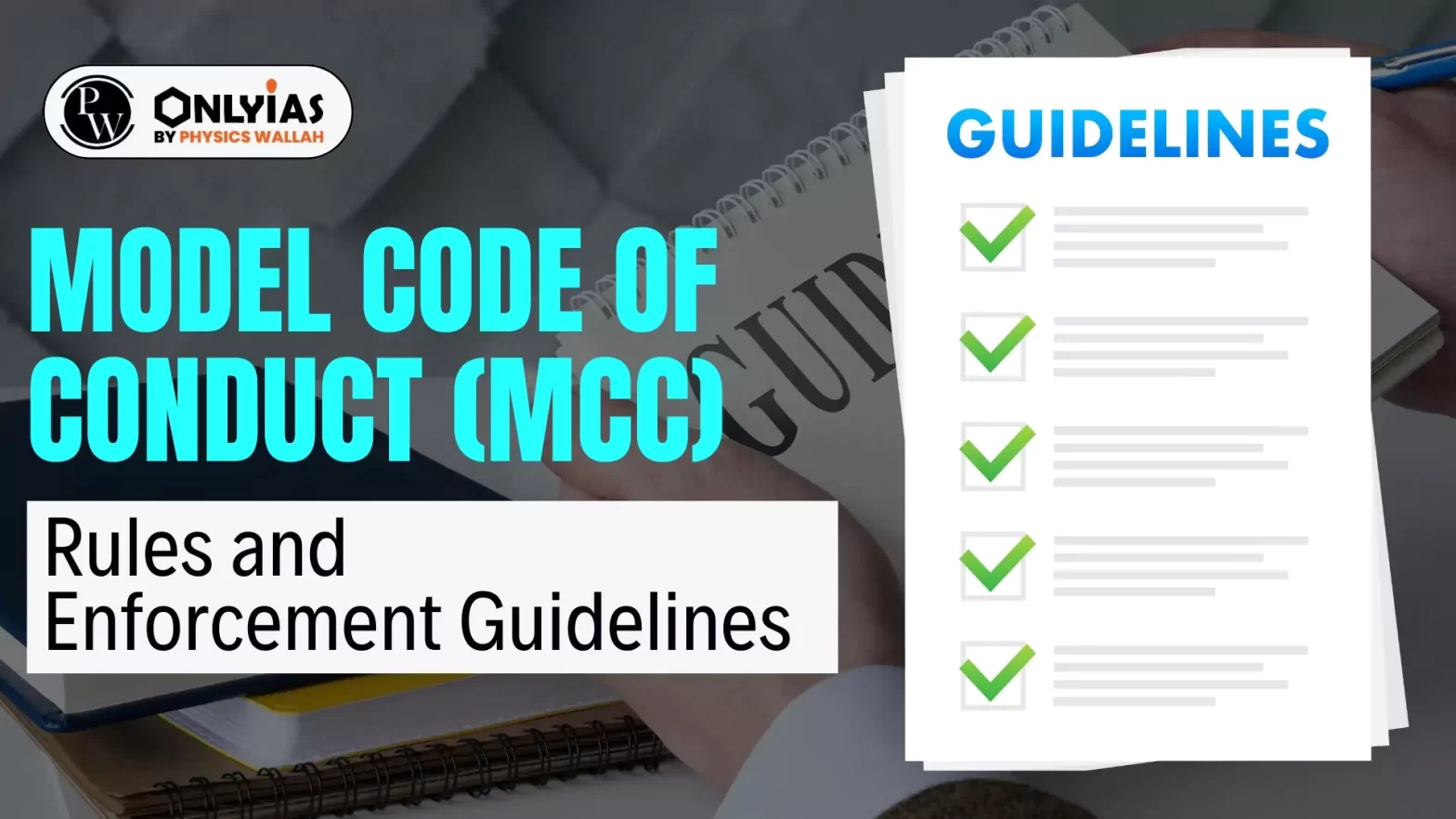Learn about India's Model Code of Conduct (MCC), its enforcement, proposed reforms, and FAQs for fair elections. Stay informed!

The Model Code of Conduct (MCC) came into effect on March 16, when the Election Commission of India (ECI) announced that the Lok Sabha elections would be held in seven phases from April 19, 2024 to June 01, 2024.
The Model Code of Conduct (MCC) is a set of rules put in force by the Election Commission of India (ECI) to guarantee free and fair elections in the country. It is a set of rules that have evolved as a result of political parties agreeing to follow the principles embodied in the code. It also binds them to respect and follow it in letter and spirit.
MCC has its origins deeply entrenched in India’s electoral landscape. Its inception can be traced back to Kerala, where a precursor known as the ‘Code of Conduct’ was first introduced during the state’s Assembly elections in 1960.
Article 324 of the Constitution gives EC the power to supervise elections to the Parliament and the state legislatures, Model Code of Conduct is in keeping with that.
Reforms proposed for enhancing the effectiveness of the Model Code of Conduct (MCC) include:
| Must Read | |
| NCERT Notes For UPSC | UPSC Daily Current Affairs |
| UPSC Blogs | UPSC Daily Editorials |
| Daily Current Affairs Quiz | Daily Main Answer Writing |
| UPSC Mains Previous Year Papers | UPSC Test Series 2024 |
Model Code of Conduct is a set of rules by the Election Commission ensuring fair elections in India.
It begins with the announcement of poll schedules and remains until election results are declared.
It prohibits misuse of official machinery, transportation, advertising, and promises of financial grants during elections.
Through notices for violations, requiring responses, but it lacks legal enforceability.
Legal enforcement, technological utilization, and greater autonomy for the Election Commission.
Model Code of Conduct is known as आदर्श आचार संहिता in hindi.

<div class="new-fform">
</div>